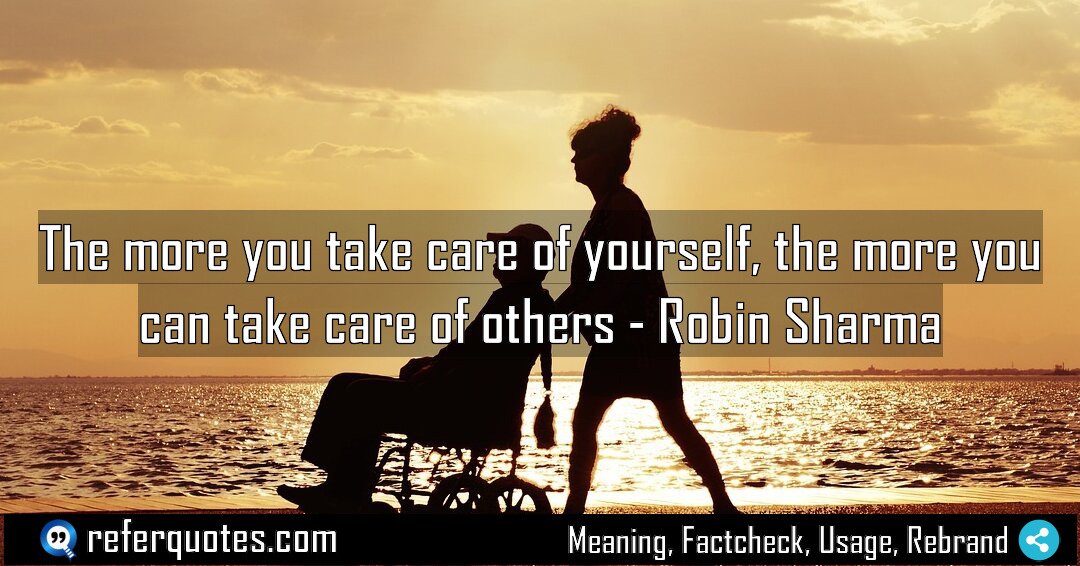You know, the more you take care of yourself isn’t about being selfish. It’s the ultimate productivity hack for leaders, parents, and anyone feeling drained. You can’t pour from an empty cup, and this quote is the reminder to fill yours first.
Share Image Quote:Table of Contents
Meaning
It’s simple, really. Self-care isn’t the destination; it’s the fuel for the journey of serving others. You have to put on your own oxygen mask first.
Explanation
Look, I’ve seen this play out so many times. You burn out trying to be everything for everyone, and then what? You’re no good to anyone. This idea flips the script. It says that by investing in your own energy, your own health, your own mental clarity, you’re not taking away from others—you’re actually building a stronger, more resilient version of yourself that has more to give. It’s not a zero-sum game. It’s a virtuous cycle. The better you are, the more capacity you have for genuine, effective service.
Quote Summary
| Context | Attributes |
|---|---|
| Original Language | English (3668) |
| Category | Health (243) |
| Topics | balance (95), giving (16) |
| Emotion / Mood | motivating (311) |
| Overall Quote Score | 79 (243) |
Origin & Factcheck
This one comes straight from Robin Sharma’s 1999 bestseller, The Monk Who Sold His Ferrari. It’s a Canadian book, but the wisdom is universal. You’ll sometimes see similar sentiments floating around, but this specific phrasing is Sharma’s.
Attribution Summary
| Context | Attributes |
|---|---|
| Author | Robin Sharma (51) |
| Source Type | Book (4032) |
| Source/Book Name | The Monk Who Sold His Ferrari (51) |
| Origin Timeperiod | Contemporary (1615) |
| Original Language | English (3668) |
| Authenticity | Verified (4032) |
Author Bio
Robin Sharma built a second career from the courtroom to the bookshelf, inspiring millions with practical ideas on leadership and personal mastery. After leaving law, he self-published The Monk Who Sold His Ferrari, which became a global sensation and launched a prolific writing and speaking journey. The Robin Sharma book list features titles like Who Will Cry When You Die?, The Leader Who Had No Title, The 5AM Club, and The Everyday Hero Manifesto. Today he mentors top performers and organizations, sharing tools for deep work, discipline, and meaningful impact.
| Official Website | Facebook | X| Instagram | YouTube
Where is this quotation located?
| Quotation | The more you take care of yourself, the more you can take care of others |
| Book Details | Publication Year: 1997; ISBN: 9780062515674; Latest Edition: HarperSanFrancisco Edition (2011); Number of Pages: 198 |
| Where is it? | Chapter: The Circle of Care, Approximate page from 2011 edition: 156 |
